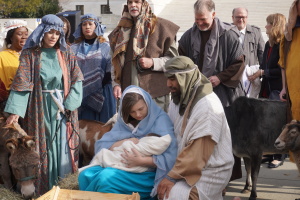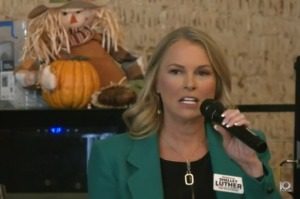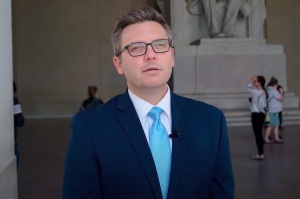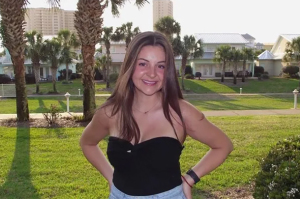Pastor Saeed Abedini Refusing to Deny Jesus Christ for His Freedom Amid Iran Releasing Other Prisoners, Says ACLJ
U.S. Pastor Saeed Abedini is refusing to deny Jesus Christ and turn back to Islam, even if that could means jeopardizing his release from prison, the American Center for Law and Justice (ACLJ) said.
Abedini has been imprisoned for almost a full year now in Evin Prison in Tehran because of his Christian faith. Iran has recently released 11 prisoners of conscience, and is poised to release almost 80 others, but despite repeated attempts to have Abedini renounce his faith, the pastor has refused to do so.
Below is an edited phone interview The Christian Post did on Tuesday with Tiffany Barrans, the international legal director at the ACLJ, which represents the pastor's wife, Naghmeh, and their two children in the U.S.
CP: The latest ACLJ letter writing campaign to Iranian President Hassan Rouhani has over 89,000 pledges. Why has Pastor Saeed's story garnered such worldwide support?
Barrans: Well, I think his case is pretty clear cut. There is no question that Iran has tried to paint religious minorities in Iran to be common criminals. But from the beginning of this case, Iran admitted this is solely about his Christian faith.
We have the Iran government admitting that it is violating its own law and international law right up front for detaining him solely for his Christian faith. You also have the fact that he is an America citizen, and it touches a lot of people's hearts here in the U.S., which is really encouraging. It is time that the church awakens to what's going on with persecuted Christians around the world.
CP: Why was Pastor Abedini not among the 11 prisoners of conscience released last week by Iran?
Barrans: They released 11 on the 18th and there has been a promise as of yesterday morning to release another 80 prisoners of conscience. Saeed hasn't been included on that list, and what we know from our research is that all of the individuals released last week had already served one third of their time.
Quite honestly, most of them were close to being done with their sentences. The two Christians released had only six weeks remaining of their sentence. In light of the President of Iran coming to the U.N. and attempting to better the image of Iran and its human rights record right now, I think that this is a political move more than anything because they really aren't looking at most of their political prisoners. We know that there are over 800 prisoners of conscience. So 91 is really a small (number). Iran's words are really stronger than their actions.
Part of the condition behind their release is that they first had to confess to their crimes, something that was offered to Pastor Saeed but he said "I have done nothing wrong, being a Christian is not a crime." And part of that is he would have had to recant and return to Islam, which is something he is not willing to do.
CP: How much power does President Rouhani have to release prisoners in respect to Supreme Leader Ayatollah Khamenei?
Barrans: The Supreme Leader essentially holds the keys to all pardons. But we do know that Rouhani and his current engagements, and him being the one who has made all these promises of reform and moderation, has at least at present the public's eye to encourage the religious leaders, the Ayatollah among them, to include Saeed among the released.
CP: How much can and should the Obama administration do for Pastor Abedini?
Barrans: I think they should do absolutely everything within their authority to do. We have a nation that was founded on principles of religious freedom, and if we don't stand for them and it appears to the entire world that this is priority to the United States, then who will?
One thing we have encountered as the ACLJ (in diplomatic meetings) – the number one thing we hear back is "well, where is your president in all this? Where is your government? Why isn't your government speaking out? Why hasn't your government approached us?" Which indicated that our government may not be doing everything that it can to see him released.




























